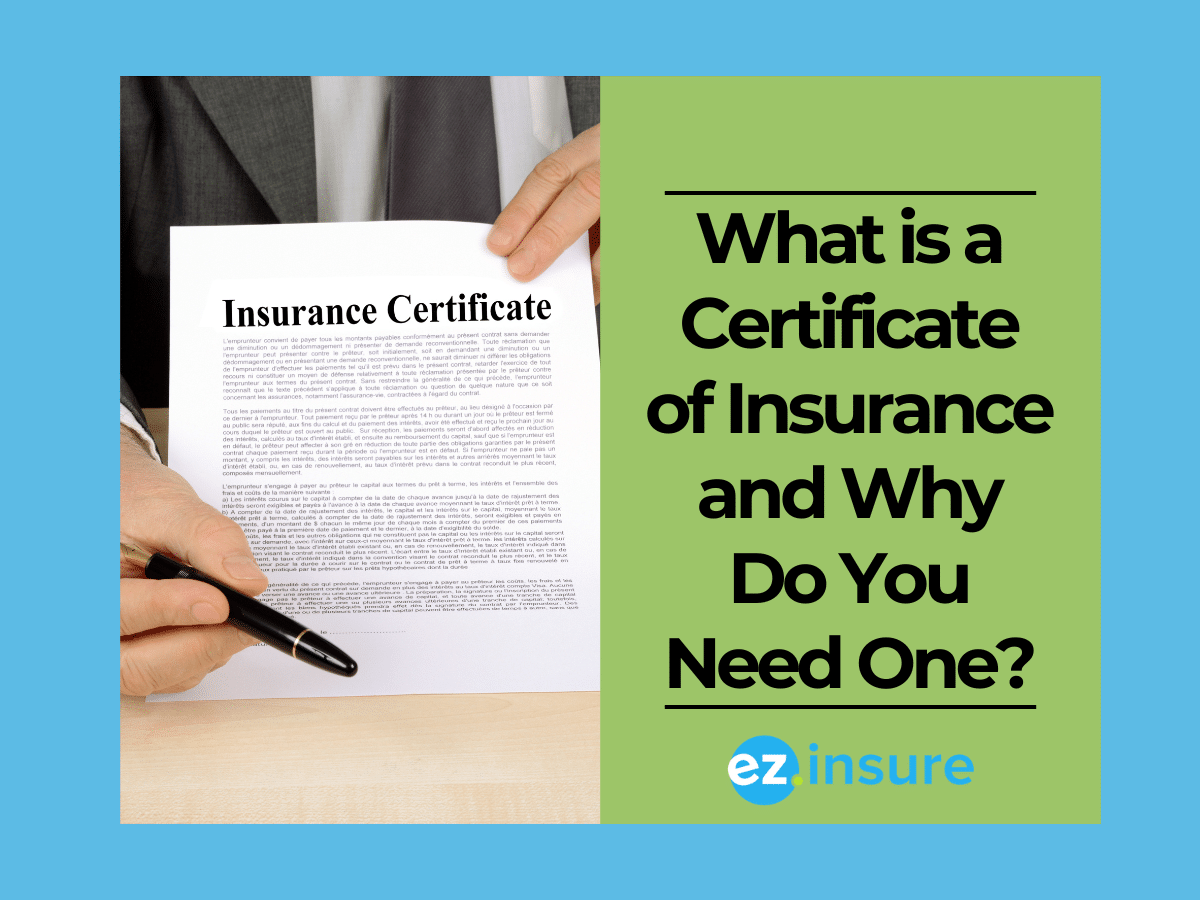A Certificate of Insurance (COI) is more than simply a piece of paper—it’s proof of your coverage and professionalism.
Whether you’re a contractor, small business owner, event organizer, or another profession, having a COI guarantees that you meet legal and client demands while simultaneously building trust with your partners.
Now let’s take it a step further and discuss what a certificate of insurance is, why having one is so important, and how you can get one.

What is a Certificate of Insurance?
A Certificate of Insurance (COI) is a standardized document that verifies that your business or services are covered by active insurance coverage. Here’s what’s included in your standard COI:
- Policyholder Information: Identifies the insured company or person.
- Insurance Company Details: Provides contact information for the insurer.
- Policy Types & Coverage Limits: Provides a list of insurance policies, (workers’ compensation, general liability, etc.), along with their respective limits.
- Effective Dates: Indicates the beginning and ending dates of coverage.
COIs can include multiple different policy types such as general liability, professional liability, and commercial auto insurance, all listed on the same document.
Why is a Certificate of Insurance Important?
- Provides Proof of Coverage: Having a COI shows others such as clients, partners and vendors that you’re insured, giving them peace of mind.
- Establishes Trust & Professionalism: Demonstrates that you take financial responsibility seriously, increasing confidence in business interactions.
- Meets Contractual Obligations: Guarantees adherence to contracts requiring insurance protection, shielding all parties from potential liabilities.
How Does it Differ from an Insurance Policy?
A common misperception is that a Certificate of Insurance (COI) is the same as an insurance policy. Although they are linked, they perform completely different functions:
- A Certificate of Insurance is a Summary: A Certificate of Insurance is a one-page document that summarizes the insurance coverage a policyholder has. It contains fundamental information such as policyholder information, types of coverage, coverage limits, and effective dates.
- An Insurance Policy is Comprehensive: In contrast, an insurance policy is a lengthy contract outlining all of the coverage’s terms and conditions. It offers information exclusions, deductibles, premiums, and other relevant clauses.
- Why the Difference Matters: A COI is a quick way of proving coverage, but it does not include the complete terms or fine print of the insurance policy. Businesses that require a COI should always review the entire policy to ensure that it satisfies their needs.

When You Might Be Asked for a Certificate of Insurance
A COI may be required in a number of professional settings:
- Business Contracts: Prior to beginning a project, clients may ask for proof of coverage.
- Property Rentals: Landlords frequently ask commercial tenants to provide proof of liability insurance in the form of a COI.
- Event Planning: Venues may request a Certificate of Insurance (COI) to prove your coverage for accidents or damage.
- Client Peace of Mind: Clients frequently request COIs to limit their responsibility while working with contractors or service providers.
How to Get a Certificate of Insurance
- Request a COI From Your Insurer: Most insurers will give them to you at no additional expense.
- Review the Details: Check that insurance limits, dates, and coverage(s) making sure that they align with the details on your policy, and are consistent with client or contract requirements.
- Request in Advance: Always have a COI available before beginning a project or signing a lease.
Mistakes to Avoid When Handling a COI
When providing or handling your Certificate of Insurance, make sure to avoid the following mistakes:
- Providing an Outdated COI: Over time, insurance coverages and details tend to change. Using an expired COI or one that does not reflect current coverage may result in disputes or contract termination.
- Failing to Meet Client Requirements: Certain contracts demand specific coverages or endorsements, such as adding the client as an additional insured. Always double-check the COI to make sure it fits the other party’s specifications.
- Relying Solely on a COI: A COI does not replace the entire insurance coverage. Always check the entire policy to understand the actual terms.
Final Thoughts
A Certificate of Insurance is more than simply a requirement— it’s a valuable tool for protecting your business, winning client trust, and pursuing emerging opportunities.
Don’t wait to secure your business coverage and COI. Visit EZ.Insure today to learn about comprehensive coverage options so your business can stay successful and thrive for years to come.
To get started, just enter your ZIP code on the right side of the screen, or give us a call at (855)-694-0047.
Was this blog helpful? Check out our full resource library to gain more tips and advice to help your business stay safe and save money.
